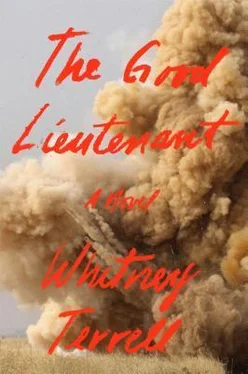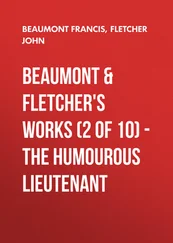“Yeah, we went through everything.”
“It’s a fucking spaceship,” Pulowski called excitedly.
“What do you mean, a spaceship?”
“I mean like some guy built a spaceship here, you know? Like to play in. It’s kinda weird, right?” Pulowski had clambered inside the structure, which looked more like a vegetable steamer with its metal panels folded in.
“Probably a lookout post, is what it seems to me,” Fowler said.
She waited through a fussy, rustling silence, which was the sound of Pulowski worrying. “So what are we looking for here?” he said, climbing out.
Fowler hunkered down along the edge of the roof. “The note you gave me,” she said. “It was good. We think the guy who wrote it also took Beale. This is his house. Beale’s body is supposed to be out back.”
“Why didn’t you say that before we left?”
She’d expected this question. She’d decided that if she couldn’t explain what she’d done to get this information from Masterson’s interpreter, Faisal Amar, then she should ditch the whole scheme. “I had to push the envelope a little. Captain Hartz wouldn’t have understood. And even if he had, he wouldn’t have let me come out here.”
“Push the envelope? What the hell does that mean?”
“It means him.” Fowler nodded down at Faisal Amar. She’d located him in the yard below, lying on his side, cuffed, like a trash bag that somebody had tossed out for collection. “That guy’s in bad shape. Masterson’s been having a party with him.”
“So this is like, what, violence-bad? Bash-on-an-Iraqi-bad?”
When Fowler nodded, Pulowski covered his face with his hands and started laughing and pacing across the roof. “Oh, shit, that is too perfect. I told you Masterson was a fucking stooge. You didn’t listen to me!”
She tilted her head to the side. “It’s worse than that. If you want to trace it all the way back, it’s probably Masterson’s fault that Beale got taken in the first place. He’s been fucking up big-time out here. The good news is, it also means that whatever’s happening here, whatever happened to Beale”—she nodded at the field—“it’s not on you.”
Pulowski did not seem in any way willing to classify the interpreter’s crumpled body as good news. “So if we find Beale,” he said. “You think that’s actually going to make this whole thing somehow less of a joke?”
“That’s what I’m hoping,” she said.
“Hoping?”
“That’s what I believe. We get our guy back. No matter what happened, no matter how jacked up it was, that’s the only way to make things right.”
Pulowski did not reply to this. She could remember feeling this way the first few months she’d worked recovery: trying to convince herself that the war was like a practical joke, one that couldn’t actually fool her so long as she was around someone who already knew the punch line. Like Pulowski.
Or now, in Pulowski’s case, like her.
She watched as he hefted a goobered-up antenna from one of his Tupperware tubs and, spooling out Ethernet wire as he went, set it on the edge of the roof. She went over and crouched next to him and grabbed his hand and put the palm of it against her lips. It wasn’t something she’d planned. But it felt right. Somebody looking would’ve thought that he was telling her to stop. But she kissed him in the folds of his palm.
“All right,” he said, blushing. He might have seemed just a little bit happier. She noticed that he didn’t wipe the kiss away. “Let’s get on with it.”
* * *
The Yagi antenna on the roof beamed the video back to Pulowski’s laptop at about sixteen frames per second (normal television was thirty), and so as the camera panned across the field, there was at each pass a certain level of trailing distortion, a moment when squares of color would flare up, a single pixel bolting out to supernova size, and the swarming calculations underneath the image — the Chebyshev filters, the anti-aliasing equations, the algorithms constantly drilling away at wave sample after wave sample — would be revealed in unnaturally perfect geometric shapes. After a few adjustments, however, the body armor of the soldiers who’d stayed behind pressed Pulowski’s shoulders, their fingers reaching out to brush the screen. They marked the shadows separating the wheat field from its bordering reeds, identified the wall that defined the house’s garden, its terra-cotta top, and the iron gate whose chain they’d cut, at Faisal Amar’s suggestion, in order to enter the back field. They could see, on each pass of the camera, the ragged line of Masterson’s platoon — accompanied by Fowler — as they walked down the left side of the field. At the controls, Pulowski felt increasingly magnanimous. Without him, the field would have remained a mystery. A fragment of someone else’s dream. Now he presented it to them as a gift. The Syscolite interface had an animated circle of buttons in its upper left corner. These controlled the camera’s pan, tilt, and zoom, and Pulowski allowed the men to play with it, breaking the camera out of its preset sweep and aiming at something specific: a patch of reed, a crinkle of paper blowing across the roadway, a pile of bricks. They did this not because they saw something interesting but only to prove that, safely hunkered down inside the compound wall, they had the power to see whatever they wished to see.
After this, the mood of Fowler’s platoon eased. Expecting a test, they’d been granted recess. Dykstra, the jowly sergeant from Philly, pulled MREs from the back of his Humvee, snipped their brown foil covers, like he was back behind his ancestral Wawa counter slicing Boar’s Head, while others did a SportsCenter recap of the Muthanna intersection bombing two months back. “Dude, you would not believe that shit,” a soldier named Jimenez said. He was about Pulowski’s height but rubbery, swaying on the outside of his boots, as if he was used to doing something more interesting with his feet. The bright emerald wingtips of a dragon wove up from his shirt collar and circled his neck. “Man, it was like some kind of fucking medical show cleaning that shit up. Giant fucking disaster. You know? I mean, we’ve seen plenty of wrecks and shit. One guy gets hit with an IED, that’s plenty nasty. But you got two dudes? Standing around a dump truck packed with a thousand pounds of dynamite and some gravel? It’s cold, man. Fucking cold. And at night, man? At night, man, you hear these fucking rats—”
“Damn, man … that was — I don’t even want you to mention that nastiness while I’m eating,” Crawford said. He was the youngest of the group and he made a frightened face, eyes wide and bulging behind his gold-rimmed glasses, mouth covered daintily with a paper napkin, which he’d folded neatly in his skinny, graceful hands.
“Eeek, eek, eek,” Jimenez said, his fingers fribbling along the table.
“No!” Crawford dropped his napkin and clapped his hands over his ears.
“Hey, hey, hey,” Jimenez said, tapping Pulowski’s shoulder, a dirty love band flopping on his wrist. “You ever seen anything like that?”
“I’ve been to the Muthanna intersection,” he said. It was where they’d lost Beale. “You know that.”
“That bomb was like a point-blank blast, man, except with gravel .”
Then, on Pulowski’s laptop screen, a dog appeared in completely clear silhouette, ears up, gazing back at the house and the camera there as if aware of them.
“You see that?” Pulowski said. He was panning the camera, trying to center on the animal again. “Dogs are usually with people, right?”
“Naw, naw, there’s dogs all over the place. Just keep it on the sweep.” Crawford stood and began to stretch as if preparing to take his leave.
Читать дальше












